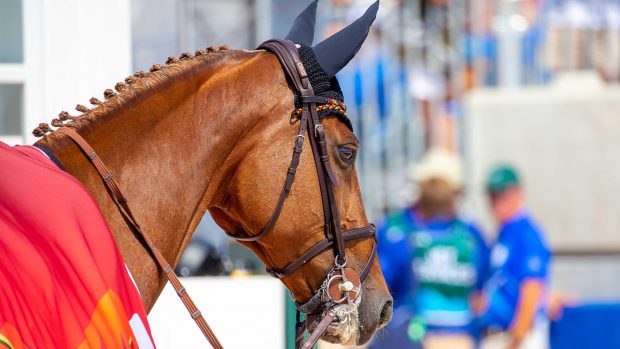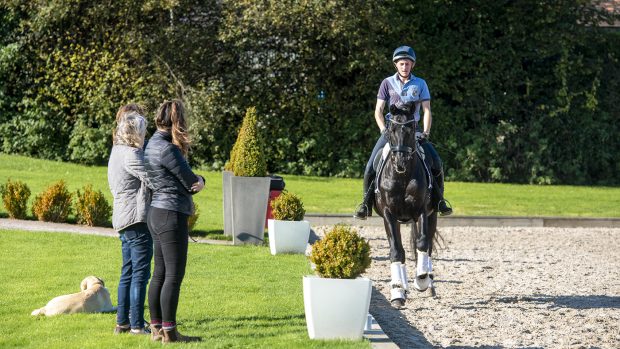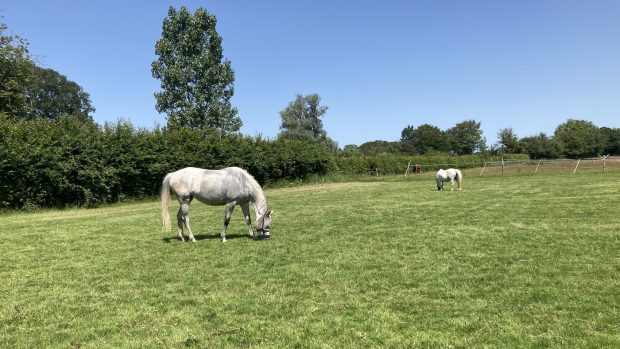Scientific studies in the early 1980s established that individual horses compete at their best when they are at their own optimum bodyweight. As a result, most racehorse trainers now have weighbridges on their yards, and only run horses when they are at their optimum performance bodyweight.
Riders cannot usually access weighbridges and have to rely on other methods of weighing their horses. Not knowing the bodyweight of a performance horse can be vital, as the effects of dehydration can be a matter of life and death.
The importance of bodyweight
Initial research carried out on 600 horses and ponies by Julie Ellis, a senior equine lecturer at Warwickshire College, and Teresa Hollands, nutritionist for Dodson & Horrell, showed that visual assessment of bodyweight under-estimated the horse’s weight by between 10% and 20%.
This is not necessarily a bad thing when it comes to formulating diets, as most of us are inclined to overfeed, but it is highly significant when it comes to working out how much electrolytes, wormer, anaesthetic or drugs our horses require.
Following four years of research, Dodson & Horrell has developed a two-sided weightape which, if used correctly, is the most accurate recording of horse’s weight when compared to weighbridge weight. The horse tape gives an accuracy of 98.6%, the pony tape 100.5%.
Weight loss and dehydration
Water is only second in importance to oxygen. It aids sight, temperature control, digestion, blood flow, and prevents circulatory collapse.
We know that human athletes may lose up to 6-8lbs (2.7-3.6kg) of sweat per hour during strenuous exercise. They are advised that bodyweight should be measured before and after training, and each pound (0.45kg) lost should be replaced with 1pt/474ml of fluid. If an athlete’s weight is not within 1-2lbs (0.45-0.9kg) of the previous day’s pre-exercise weight then additional fluids should be taken before exercise.
Athletes are also told to consume 1-1.5pt/474-592ml fluid two hours before exercise, followed by a similar amount 15-20mins before endurance exercise. In hot, humid environments 4-6oz/118-178ml of plain cool water should be taken every 15mins.
Dr David Marlin used a weighbridge to weigh 11 horses at Burghley Horse Trials in 1993, when the temperature was 13 degrees Celsius, and found that they lost an average of 15kg between Phase A (road and tracks) and Phase D (cross-country). A further 17 horses were weighed in 1994, when the temperature was 20 degrees Celsius, and these lost an average of 16.5kg.
After David’s research it has become commonplace to weigh event and endurance horses before and after performance. It is accepted that 90% of a horse’s weight loss after exercise is due to sweating and hence these weight measurements enable an accurate determination of a horse’s degree of dehydration. As a result, horses can be rehydrated and monitored accordingly to ensure adequate recovery following exercise.
Weighbridge or weightape
Studies that have been undertaken in this area have always used calibrated weighbridges on the assumption that this is the only accurate and sensitive enough method for measuring body weight losses.
However, weighing trials at Burghley in 2001 showed that the weigh tape was accurate enough to pick up the weight changes recorded on the weighbridge with a much bigger group of horses.
The weightape and the weighbridge showed that the average weight loss between the start of the roads and tracks and the finish of the cross-country was 14.5kg. The greatest loss was 26kg and the least 3kg; this variation was picked up by the weightape and was certainly not visible to the eye.
Unsurprisingly, the greatest weight losses were found in the horses whose condition score was the highest as fat is an insulator. Horses with a low condition score lost the least fluids. The USA, New Zealand and Australian horses lost less fluid compared to the British team horses.
Using the weighbridge and the weightape on Sunday morning before the show jumping showed that only one horse had regained the weight that they lost before Phase A. Some horses had lost additional weight since being weighed after the cross country; the others had regained some weight but none had replenished the fluid loss from the day before.
| For further information and friendly feeding advice call the Dodson & Horrell Helpline on 0870 442 3322 (normal national rates apply) |



